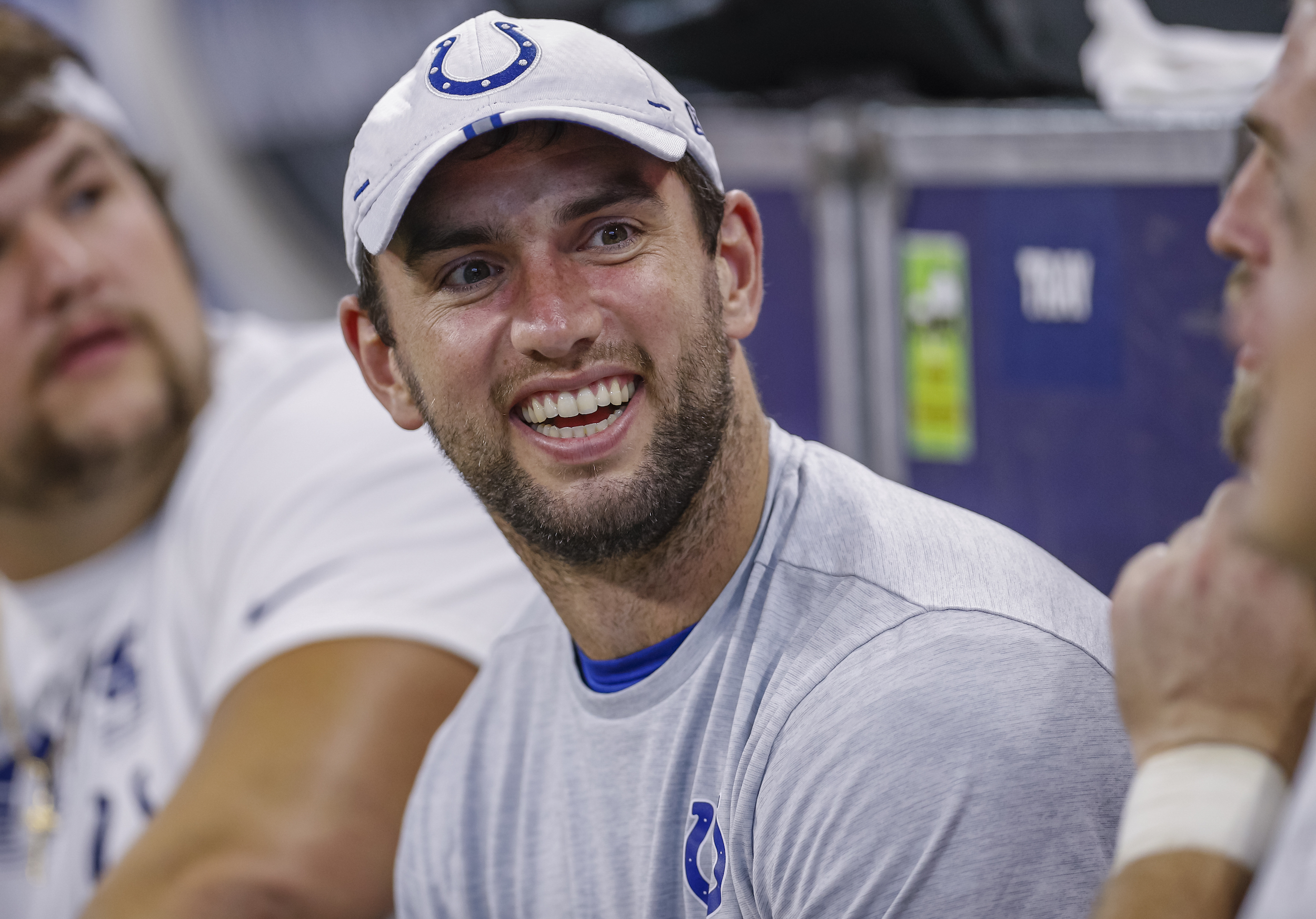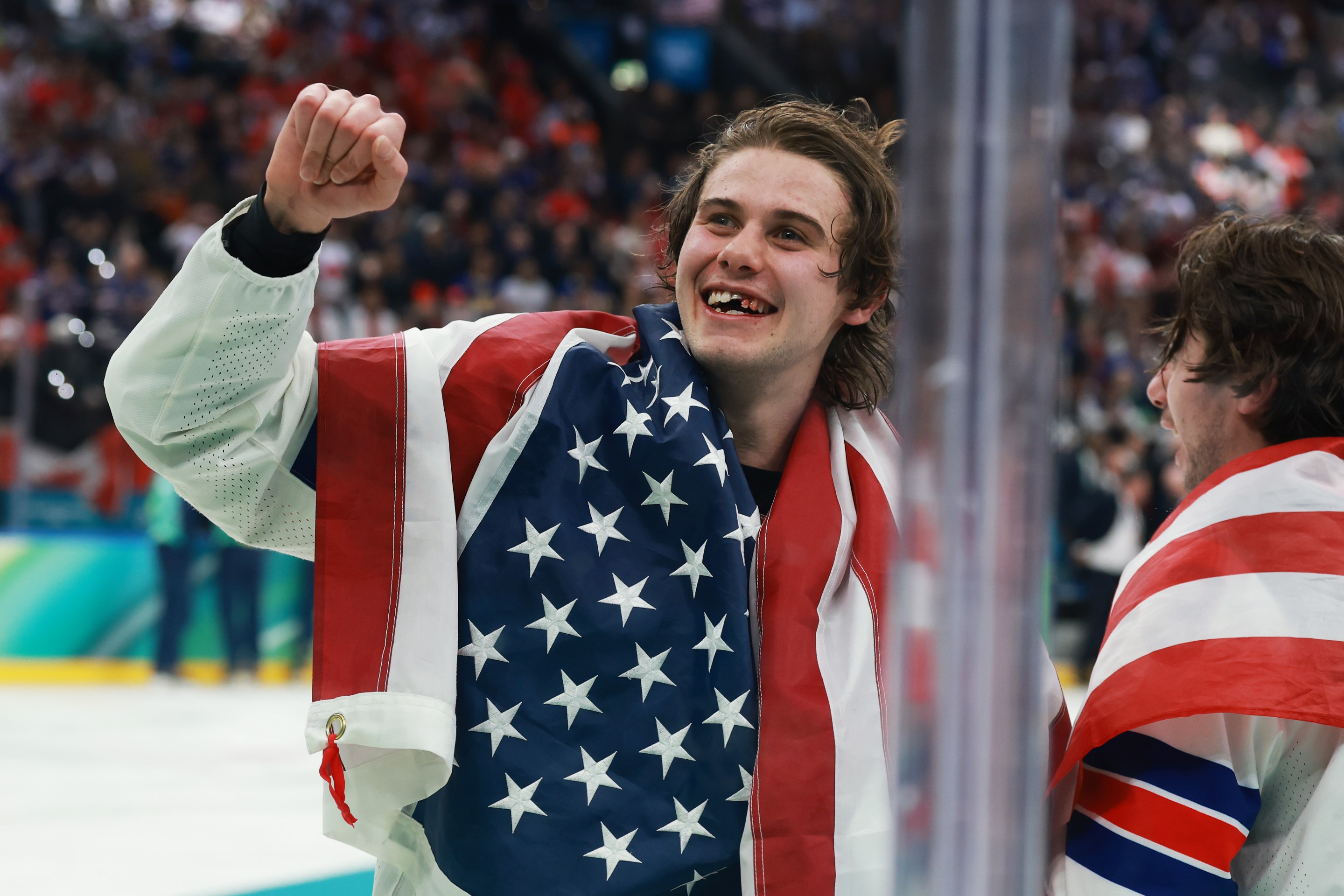On Tuesday, ESPN’s Seth Wickersham published a profile of Andrew Luck that recontextualizes the former Indianapolis Colts quarterback’s shocking decision to retire from football in 2019 at the age of 29. At the time, the decision was chalked up to the physical and mental toll of injuries—“injury-shortened career” became the go-to for describing his seven-year run—but the real story appears to be much more compelling.
ESPN’s profile recasts Luck’s obsessive control-freak elite athlete quirks, valorized during his playing days as proof of his dedication and grit, as unhealthy sacrifices that took a toll on his and his family's lives: Ultimately, Luck, who was primed from a young age to be a great quarterback, quit football because the way he needed to be in order to play football made him miserable.
Luck's most natural version of himself was to be one of the guys, he says. But what worked at Stanford didn't work in the NFL. He felt too much pressure, and had to convince himself that he had "some level of control over the outcome" of a random game. So he became someone he didn't want to be -- or, specifically, he tapped into a part of his personality he didn't always relish. He ran offensive meetings. He was so involved in blocking and route-running techniques that players nicknamed him the assistant tight ends coach. When people visited his downtown condo and it was getting close to his 9:52 p.m. bedtime during the season, Luck would disappear to the bathroom, brush his teeth, strip to his boxers, tell the group good night -- and kill the lights. He simplified his life to extremes, using a flip phone. He and his agent and uncle, Will Wilson, turned down most endorsements until he felt that he had accomplished something in the league. Trying to control every variable extended to dinners out with teammates, where he'd order for everyone without being asked. "To play quarterback, you're not allowed to worry about anything except the task at hand," Luck says. "And that seeps into other areas of life. It's not the healthiest way to live."
ESPN
The profile describes Luck's struggles with injuries and how they contributed to his mental anguish, but situates that anguish in Luck's inability to conceive of himself and his worth outside of being a professional athlete. How much of Luck's self-identity was tied to being a quarterback, Wickersham asked. "A lot. A lot. A LOT. And I didn't realize that until after the fact," Luck said.
After a 2017 trip to Netherlands with his now-wife Nicole, at the suggestion of his trainer Willem Kramer, Luck began therapy and started to think of himself as existing outside of football.
One day, Kramer asked Luck, "Aren't you more than a quarterback?"
"Huh?" Luck said.
"I mean, that's fine -- I guess. What you do on the field is amazing. But aren't you more than that?"
Luck thought so, but maybe not. It took weeks, but Luck was at the early stages of trying to shed his former self -- his quarterback self -- in favor of a person he didn't know yet. One night in the Netherlands before he returned to America, Luck took a few people out for pizza. He started to order for the table. "You're getting the Margherita" he told Kramer.
"No," Kramer said.
"You're getting it," Luck said.
"No, I'm not," Kramer said. "Why would you order for people?"
Everyone laughed, but Luck got the point.
Luck made it back onto the field and led the Colts to a successful 2018 season that culminated in a playoff victory. But he tweaked his ankle mid-season and felt the old doubts start to resurface: “the anger, the feigned stoicism, the moodiness, the empty responses to Nicole, the confusion as doctors were unable to explain what was wrong, despite three MRIs,” Wickersham wrote.
Luck felt himself drifting back not only to the "hamster wheel" of rehab, but to all of his worse impulses. He was a "spoiled child," Kramer says, sulking and scared, not only because of chronic pain but because of how he acted in chronic pain, a resentment less toward his body for failing to hold up and more toward himself. It wasn't just a matter of getting his foot to cooperate; it was that he knew what he was headed for if it did.
Not long after this, Luck called Nicole and said he was going to retire. The injuries may have been a catalyst, but the anxieties and neuroses of playing healthy were what led him to step away.
The profile gets into much more detail about what Luck picked up after retiring (fatherhood, skiing, cycling, fishing) and what’s he’s up to now (going back to Stanford to study education in the hopes of becoming a teacher), but the most interesting part to me is the claim made early in the profile about how “the greatest quarterbacks are often selfish and fragile, controlling and pouty, both the only adult in the room and a grown child.” Is it possible to be a normal guy, with functioning relationships and a healthy self-regard and a professional quarterback at the same time? There's plenty of lip service paid to addressing mental health in sports, but what, exactly, does mental health look like for a pro athlete? A single-minded focus on performance and winning? Or a mindset that's more capacious, with room for softness and flexibility and concern for other people? How do sports teams and leagues reckon with these questions, or is there too much money at stake for them to even attempt it? Is being a pro athlete fundamentally incompatible with being mentally whole?
Andrew Luck found his answers.






